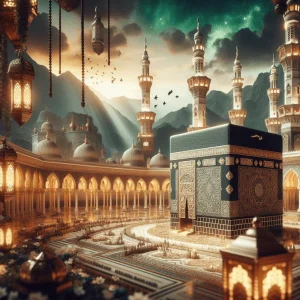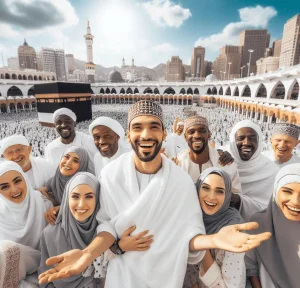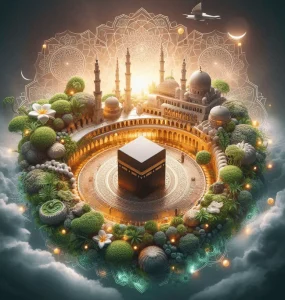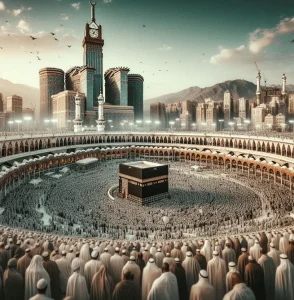Table of Contents
Modern Islamic Festivals In the tapestry of Islamic tradition, Modern Islamic Festivals represent vibrant threads, woven into the fabric of cultural identity and religious observance. These festivals, rooted in centuries-old customs and beliefs, continue to resonate with Muslims worldwide, serving as poignant reminders of faith, community, and heritage.

Embracing Diversity
Modern Islamic Festivals reflect the rich tapestry of Islamic diversity, encompassing a myriad of cultural practices and traditions. From the colorful celebrations of Eid al-Fitr and Eid al-Adha to the somber observance of Ashura and the spiritual retreat of Ramadan, each festival carries its unique significance and symbolism. Despite their diverse origins and customs, these festivals unite Muslims in a shared sense of identity and belonging.
Eid al-Fitr: A Celebration of Renewal
Eid al-Fitr, often referred to as the Festival of Breaking the Fast, marks the culmination of Ramadan, the holy month of fasting. As Muslims bid farewell to a month of self-reflection and spiritual discipline, Eid al-Fitr heralds a time of joy, feasting, and gratitude. From the pre-dawn prayers to the communal gatherings and festive meals, the spirit of Eid al-Fitr radiates with the warmth of community and the sweetness of shared blessings.
Eid al-Adha: Honoring Sacrifice and Charity
Eid al-Adha, known as the Festival of Sacrifice, commemorates the willingness of Prophet Ibrahim to sacrifice his son Isma’il as an act of obedience to God. This solemn occasion underscores the importance of sacrifice, faith, and charity in Islam. The ritual of animal sacrifice, followed by the distribution of meat to the needy, embodies the spirit of generosity and compassion, echoing the teachings of the Quran and the example set by Prophet Ibrahim.
Ashura: Commemorating Martyrdom and Resilience
Ashura holds deep significance for Muslims, commemorating the martyrdom of Imam Hussain, the grandson of Prophet Muhammad, and his companions at the Battle of Karbala. This solemn occasion serves as a reminder of the sacrifices made by Hussain and his followers in defense of truth and justice. From the recitation of elegies to the symbolic rituals of mourning, Ashura inspires believers to reflect on the values of courage, resilience, and selflessness.
Mawlid al-Nabi: Celebrating the Birth of the Prophet
Mawlid al-Nabi, or the Prophet’s Birthday, is celebrated with reverence and joy by Muslims around the world. This auspicious occasion commemorates the birth of Prophet Muhammad, the final messenger of Islam, and serves as an opportunity to reflect on his life, teachings, and legacy. From the recitation of poetry and the performance of nasheeds to charitable acts and community gatherings, Mawlid al-Nabi fosters a deep sense of love, respect, and gratitude towards the Prophet.
Ramadan: A Time of Spiritual Reflection and Renewal
Ramadan, the ninth month of the Islamic lunar calendar, holds a special place in the hearts of Muslims as a time of spiritual reflection, self-discipline, and renewal. During this sacred month, Muslims fast from dawn until dusk, abstaining from food, drink, and worldly pleasures as a means of purifying the soul and drawing closer to God. The nightly prayers, recitation of the Quran, and acts of charity and kindness illuminate the path of righteousness and piety.
Modern Islamic Festivals
In conclusion, Modern Islamic Festivals serve as invaluable markers of identity, faith, and tradition in the lives of Muslims worldwide. From the exuberant celebrations of Eid al-Fitr and Eid al-Adha to the solemn observance of Ashura and the reverent commemoration of Mawlid al-Nabi, these festivals embody the diverse tapestry of Islamic heritage and culture. As Muslims mark these moments with reverence and joy, they reaffirm their commitment to the timeless values and teachings of Islam. May Modern Islamic Festivals continue to inspire and unite believers in the spirit of faith, community, and compassion.






More Stories
Tales of Wonder: Unraveling the Islamic Heritage Mystery
In the Footsteps of Greatness: Journeying Through Islamic Heritage Sites
Echoes of History: Rediscovering Islamic Heritage Around the World